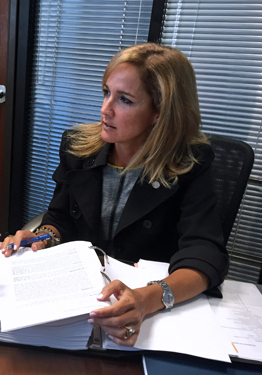Deadly swine virus nears Puerto Rico – here’s how to help keep it out

Fernando Lugo, USDA chief of operations for the African swine fever Incident Management Team in the Dominican Republic, warns that the disease poses a threat to Puerto Rico’s economy and cultural traditions.
African swine fever (ASF) is spreading rapidly across the globe and, while not a threat to human health, it is a global economic threat. Since January 2022, 62 countries and territories have reported the presence of ASF, resulting in 1.7 million animal losses and substantial economic turmoil in affected areas.
Due to the proximity of ASF detections in the Dominican Republic and Haiti, the U.S. Department of Agriculture (USDA) created a protection zone in Puerto Rico and the U.S. Virgin Islands. The protection zone allows the USDA to intensify surveillance efforts in these locations to keep ASF out of the United States.
If ASF makes it to the U.S., it would have severe economic and cultural consequences. Fortunately, the spread of ASF is preventable: Everyone can take several simple yet vital actions to keep ASF out of the U.S.
Most importantly, you should not pack or ship any products containing pork while traveling this holiday season.
ASF poses a serious threat to the Puerto Rican economy
ASF is a highly contagious viral disease that infects pigs. While ASF is not dangerous to human health, it has up to a 100% swine mortality rate, and there are no vaccines or treatment options.
If ASF spreads to the U.S. mainland, U.S. Virgin Islands or Puerto Rico, it will decimate pig populations, causing pork shortages and increasing pork prices. In fact, if this deadly, highly contagious disease arrives on the mainland, it is estimated to cost the nation more than $75 billion over 10 years and more than 60,000 farmers their livelihoods.
In Puerto Rico alone, there are approximately 400 pig farms with more than 52,000 commercial pigs. An ASF outbreak on the island could cost the Puerto Rican economy more than $6 million annually. With inflation increasing and food prices up 18.3% from 2021 to 2024, further price increases due to a pork shortage are the last thing Puerto Ricans need.
On top of economic impacts, an ASF outbreak would have adverse social and cultural impacts. Pork is an integral part of many cultural celebrations here in Puerto Rico, and keeping ASF out of the U.S. is essential to ensure that pork can remain a part of people’s treasured family recipes.
ASF would also disrupt beloved community traditions like la Ruta del Lechón, a popular destination known for its abundance of lechoneras, open-air roadside restaurants that specialize in barbecue pork.
ASF can endure extreme temperatures — cooking and/or freezing it doesn’t guarantee the virus will be killed — meaning it can be found in various cooked pork products like pasteles, mofongo and pernil. Therefore, human behavior plays a pivotal role in spreading ASF.
Stop the spread of ASF to protect your community
International travel is a primary driver of ASF outbreaks. As such, USDA issued a federal order suspending the interstate movement of live swine, swine products, and swine byproducts between the U.S. Virgin Islands, Puerto Rico and the U.S. mainland.
As tempting as it may be, it is critical not to pack or ship any foods containing raw or cooked pork when traveling to or from the U.S., including Puerto Rico and the U.S. Virgin Islands.
Additionally, when traveling outside the U.S., avoid any areas with pigs. If you must be around pigs, thoroughly clean, disinfect or dispose of any clothing and shoes worn around pigs.
When returning to the U.S. or traveling between the mainland, Puerto Rico and the U.S. Virgin Islands, you should declare all meats, animals and animal products to Customs and Border Protection (CBP) and inform CBP about any time spent near pigs. Once back in the U.S., wait at least five days before visiting any places with pigs.
Successfully stopping the spread of ASF will require a community-wide effort. It’s critical to raise awareness about ASF and its potential impact to prevent the disease from reaching the U.S. by sharing information with your friends and family.
With simple steps, like not packing or shipping pork and pork products, we each have the power to protect the national agricultural industry and local economies. By working together to prevent ASF, we can minimize disruptions to businesses and family traditions, ensuring the holiday season remains a time of celebration.

Author Fernando Lugo is an agronomist and the USDA chief of operations for the ASF Incident Management Team in the Dominican Republic. Previously, he was a supervisor at the port of Carolina in Puerto Rico where he spent three years at the Pre-Departure Program. He graduated from the University of Puerto Rico in Mayagüez.












